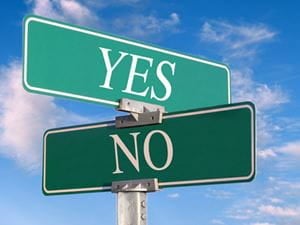
Too often reality is seen as the enemy. Even Albert Einstein was not a fan. He said, "Reality is merely an illusion, although a very persistent one." Yet, he played the violin. In a now famous story, one day he was playing in a string quartet with some very illustrious musicians, one of them the great Jascha Heifetz. Albert found one passage especially difficult. After making many mistakes, his friend Jascha called out, "Albert, Albert, what’s the matter with you? CAN’T YOU COUNT!"
Maybe Albert tried to explain to his friend Jascha that his playing out of time was merely a persistent illusion, but, if he did, I bet Jascha wasn’t buying it. While in some broader philosophic notion of Absolute Truth perhaps reality is merely an illusion, on the local level where there is music and life, it is the plane of existence that we live in. And while people are often prone to say things like, "My truth and your truth," as if reality were merely a matter of opinion, reality is an objective truth that is less subject to interpretation than many might think.
Let’s talk in real terms about reality. To be alive is not the same thing as being dead. Life has certain properties that inanimate objects do not. There is a before something is alive, when it is alive, and after it is alive. Something alive may or may not know it is alive, but self-perception is only incidental to the fact. When that something is no longer alive, it operates in a very different way than when it was alive.But here I am, talking in support of reality as something that can exist whether we perceive it or not. I hope we kind of get that, especially if you want to create something, and especially is that something is your own life. You can’t play the violin in tune unless you can hear what is going on IN REALITY so you can adjust your pitch as needed.
While the creative process usually begins in the imagination, if it is successful, it will end up in reality. And, if we are to master our own creative process, we must have a firm grip on reality. Usually when things like this are said, someone mentions Vincent Van Gough. Wasn’t he as crazy as a loon? Didn’t he cut off one of his ears? Wasn’t he self-destructive as could be? Well, yes, he was when it came to his life. But, when it came to his art, it was a different story. He mapped out his canvases structurally. He had a firm understanding of how color worked, and how to use it to be expressive. He knew what he wanted to paint before he put brush to canvas. He evaluated the current state of a painting with his desired state as he moved through the creative process, and when his vision matched what was on the canvas in front of him, he signed the painting. Had he used the same process in his life that he used when he painted he may have had a different history. Who’s to say? But, for him to paint as he did, during those moments he had to be acutely aware of reality.
In reality you may be having a hallucination, but the hallucination is not about reality. So, you might say if you wanted to try to describe things in terms of "my truth, etc." that your "truth" in the case of hallucinating is independent from the actual reality in which you are having your delusion. In your "truth" maybe you think you can fly, but if you try, the reality of gravity will win the argument.
One of my "famous quotes" (according to Google) is "Reality is an acquired taste." For most of us, we don’t like reality because it may include unpleasant things. But insisting that things are not what they are doesn’t make them change. Once you become a fan, anything other than reality is not something you want because it is where the action is.
It takes discipline to learn to see reality as it is. It takes skill, because we have been trained to think comparatively, which means we have been trained to have reality stimulate triggers of concepts we have, past experiences we presume to be the same as what is going on, theories, speculations, beliefs, and so on. To see reality takes looking and observing. But the mind isn’t good at that because it takes the ability to be okay with not knowing something while we are finding out. The mind hates not knowing, and so, when we don’t actually know something, instead of looking to find out, our minds wants to fill the space with answers that pretend to know what we don’t know. To learn how to, not only tolerate, but appreciate not knowing something until we find out, is how we acquire a taste for reality.
One thing we can count on: Reality will be real. That’s why it is reality.©2010 Robert Fritz
Robert Fritz is an author, composer, filmmaker, and management consultant known for his development of "structural dynamics," the study of how structural relationships impact behavior from individuals to organizations. His book The Path of Least Resistance and subsequent books develop the theory and application of structural dynamics and the creative process. Find out about his new online course, Creating Your Life.

